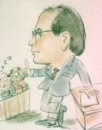And the Governor is ....
Puerto Rico awaits to learn who the next Governor will be. But politics has moved from the polling places to the courthouses, with the Supreme Court of Puerto Rico issuing an opinion while a petition for removal was pending, and the U.S. District Court declaring said decision void ab initio, for having been issued in violation of the Federal removal statute, 28 U.S.C. Section 1446(d).
The Supreme Court of Puerto Rico's opinion (in Spanish) in Manuel R. (“Manny”) Suarez Jiménez v. Comisión Estatal de Elecciones, et al., 163 DPR --, 2004 TSPR 179 (Nov. 20, 2004) purported to decide the issue of the questioned split ballots in which voters had marked an X under one party's insignia, while voting for all the candidates of another party. But when the Supreme Court issued this opinion, it did so fully aware that a Petition for Removal had already been filed in the U.S. District Court, as had a notice of removal before the Supreme Court.
In a concurring opinion, one of the Justices essentially ruled in a footnote that the petition for removal had been untimely filed. In fact, it had been filed 5 days after the filing of the case before the Court of first instance, which had dismissed the case.
U.S. District Judge Daniel R. Domínguez issued an Opinion and Order in the removed case, declaring the Supreme Court of Puerto Rico's opinion void ab initio. See Manuel R. Suarez-Jiménez, et al. v. Comisión Estatal de Elecciones, et al., Civil No. 04-2288 (DRD) (Opinion and Order of Nov. 23, 2004).
In the case that was already pending before the District Court prior to the above mentioned removal petition, the Court issued an Amended Order in which, contrary to what the Supreme Court of Puerto Rico had ordered, i.e., that all of the questioned split ballots be adjudicated as valid, it ordered that such ballots should be tallied but not adjudicated until further order from the U.S. District Court. See Pedro Rosello, Luis Fortuño, et al. v. Sila M. Calderón, et al., Civil No. 2004-2251 (DRD) (Amended Order of Nov. 23, 2004). And it thereafter issued an Amended Order as to Scope of Electoral Recount on November 24, 2004.
Yet, to date, the U.S. District Court has not decided (a) whether it will even exercise jurisdiction, or (b) whether it will accept the removed case or order a remand.
To date, those favoring the counting and adjudication of the questioned split ballots say the Supreme Court acted correctly, with opponents saying the Supreme Court tried to steal the election. In the case of the U.S. District Court, the audience switches sides and those wanting the split ballots adjudicated allege the District Court is trying to steal the elections, whereas those alleging these are null ballots consider that they will only find Justice before the U.S. District Court.
All we can say for the moment is that it clearly appears as though the Supreme Court may have overplayed its hand, even if they are the final interpreters of Commonwealth law, whereas the District Court has yet to render a decision on the merits of the issue. And it seems quite certain that the case will soon head to the U.S. Court of Appeals for the First Circuit.
UPDATE: See dissenting opinions in Manuel R. (Manny) Suarez-Jiménez v. Comisión Estatal de Elecciones, 163 DPR --, 2004 TSPR 185 (Nov. 30, 2004) (Rebollo, J., dissenting), and Manuel R. (Manny) Suarez-Jiménez v. Comisión Estatal de Elecciones, 163 DPR --, 2004 TSPR 186 (Nov. 30, 2004) (Corrada Del Río, J., dissenting) (both in Spanish). See also the District Court's Amended Opinion and Order of November 30th in Rossello v. Calderón, Civil No. 04-2251 (DRD).
So, . . . it is now December 2, and we still await to find out who the next Governor of Puerto Rico will be. In the meantime, it appears the First Circuit will hear oral arguments on a petition for Mandamus on Friday, December 10, 2004.

